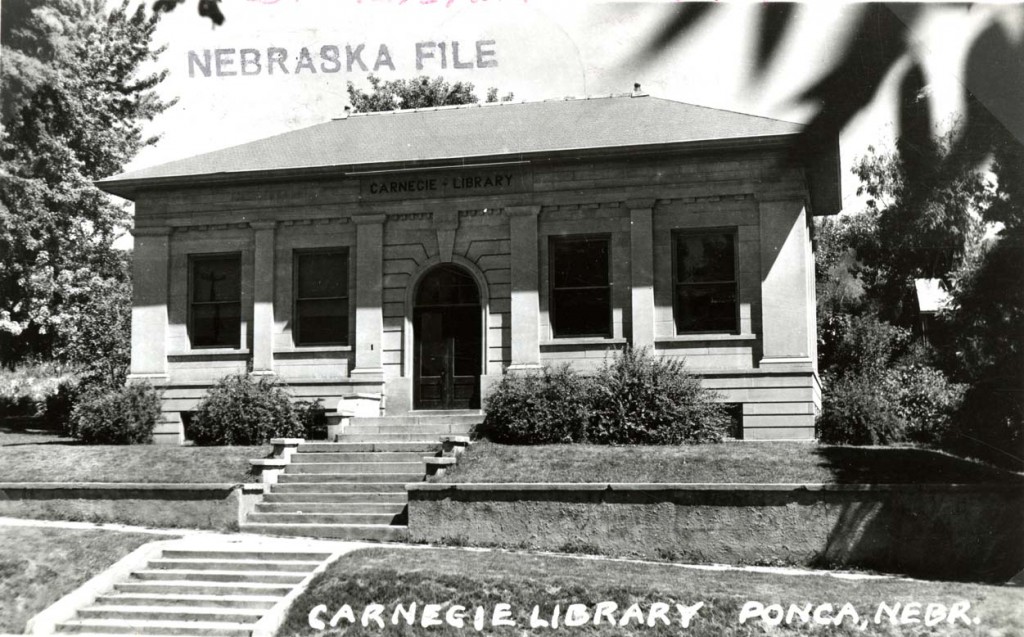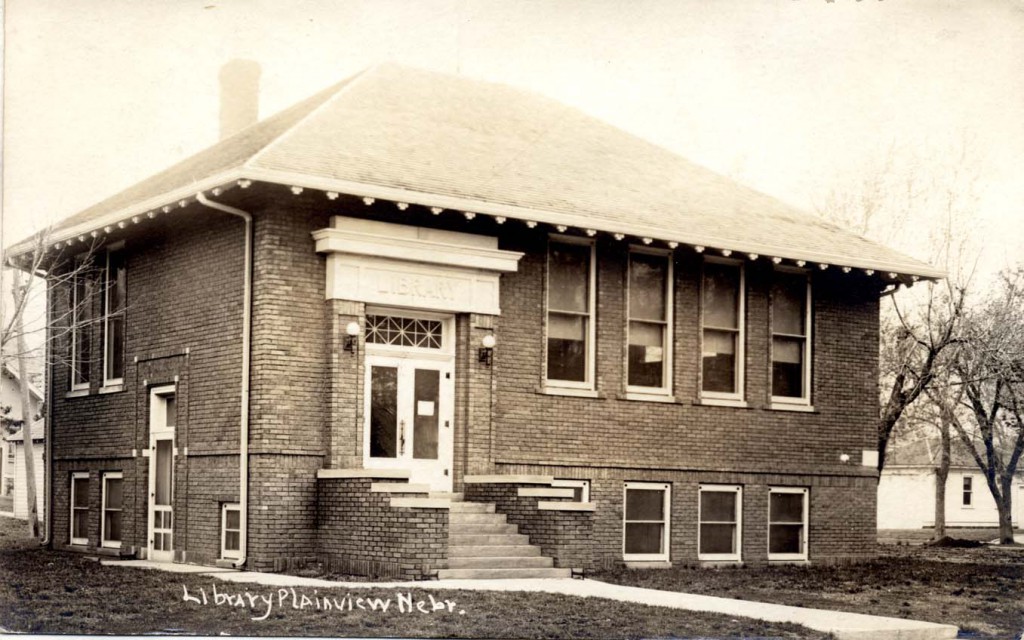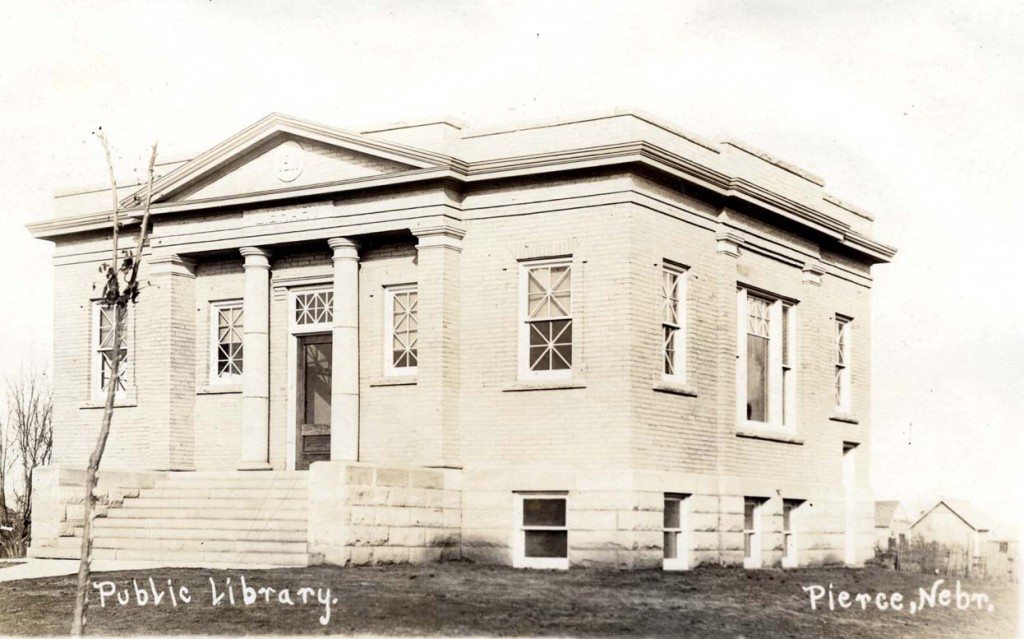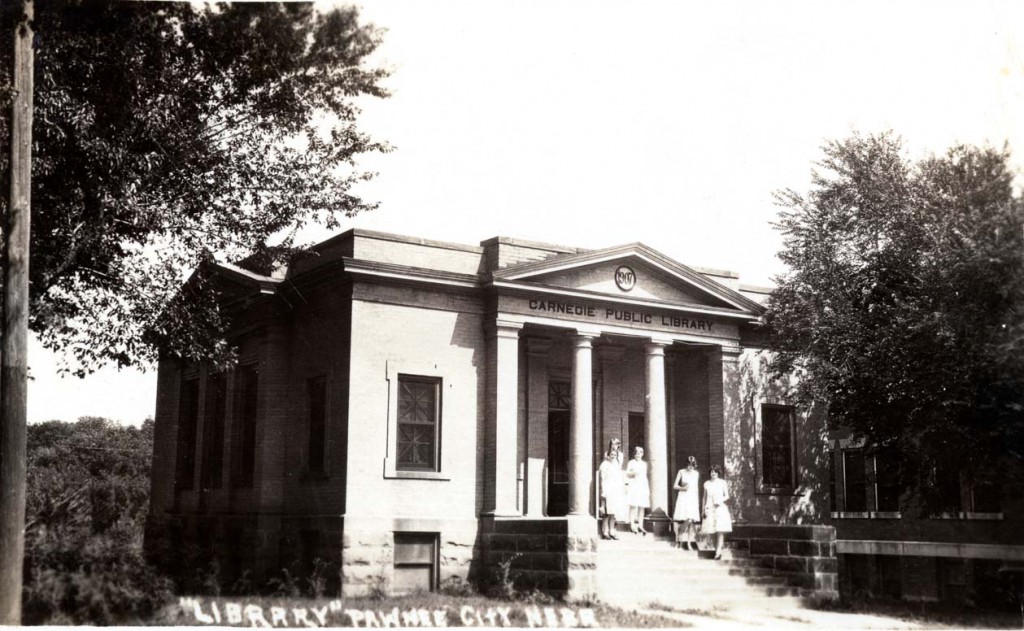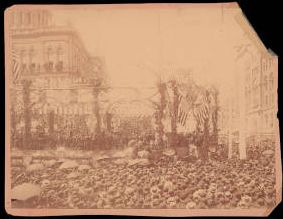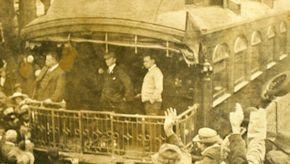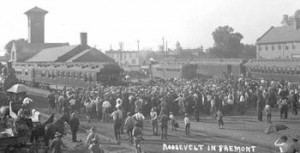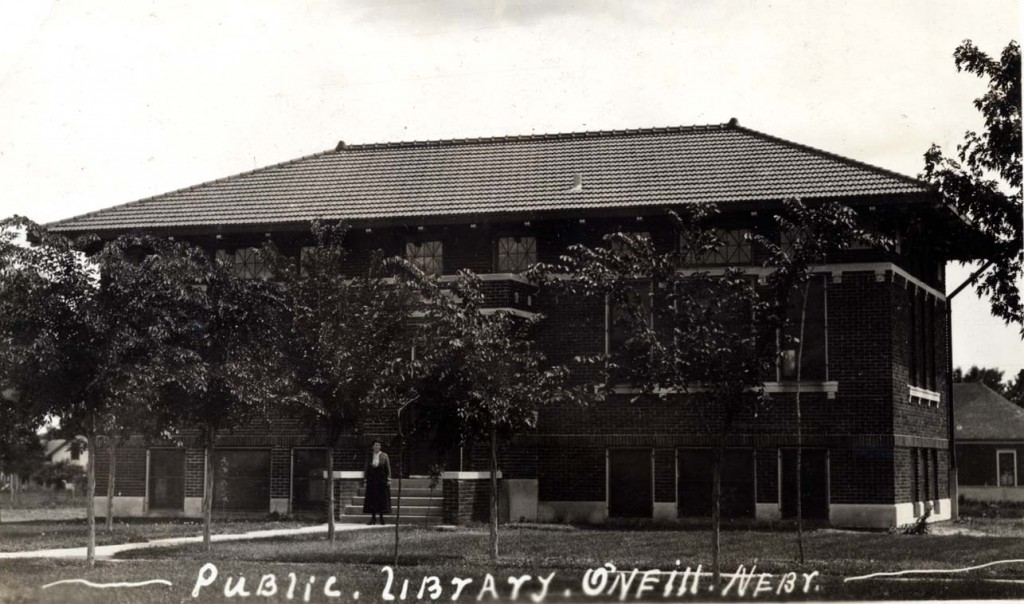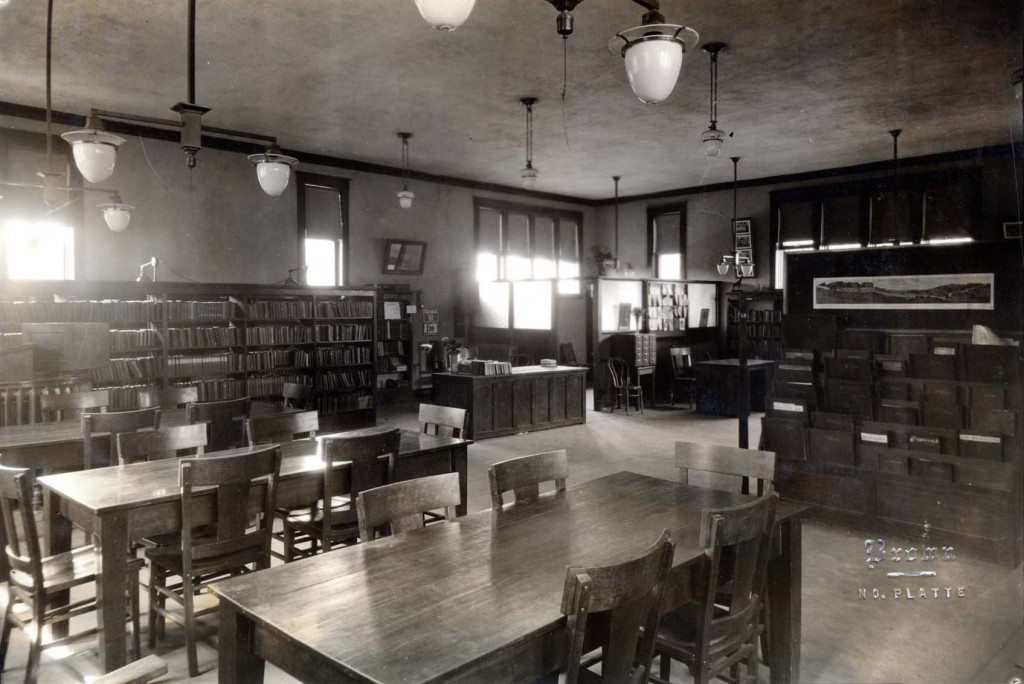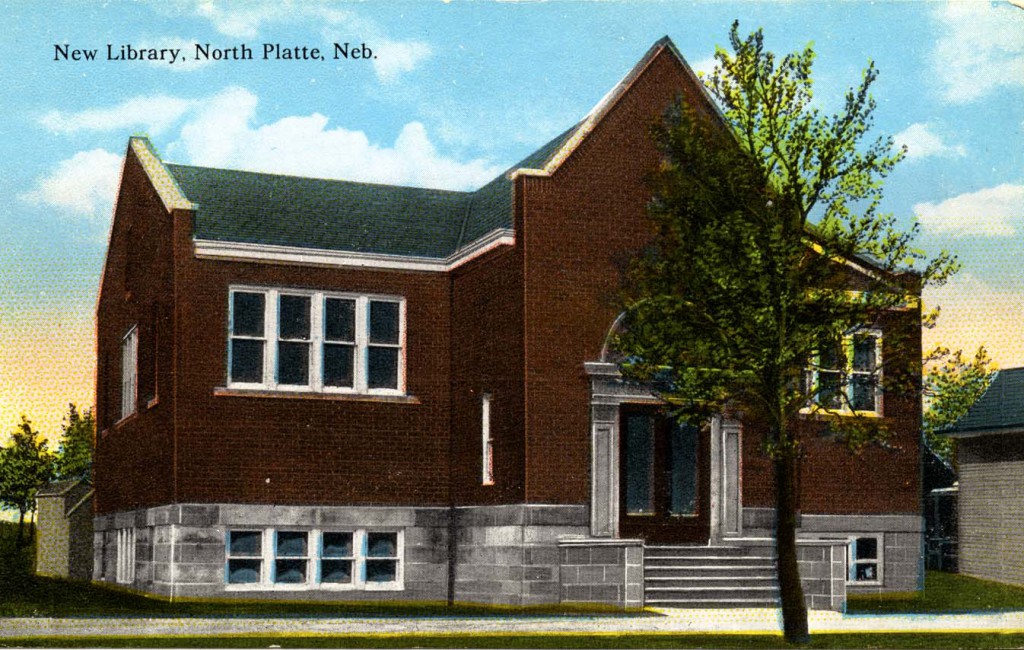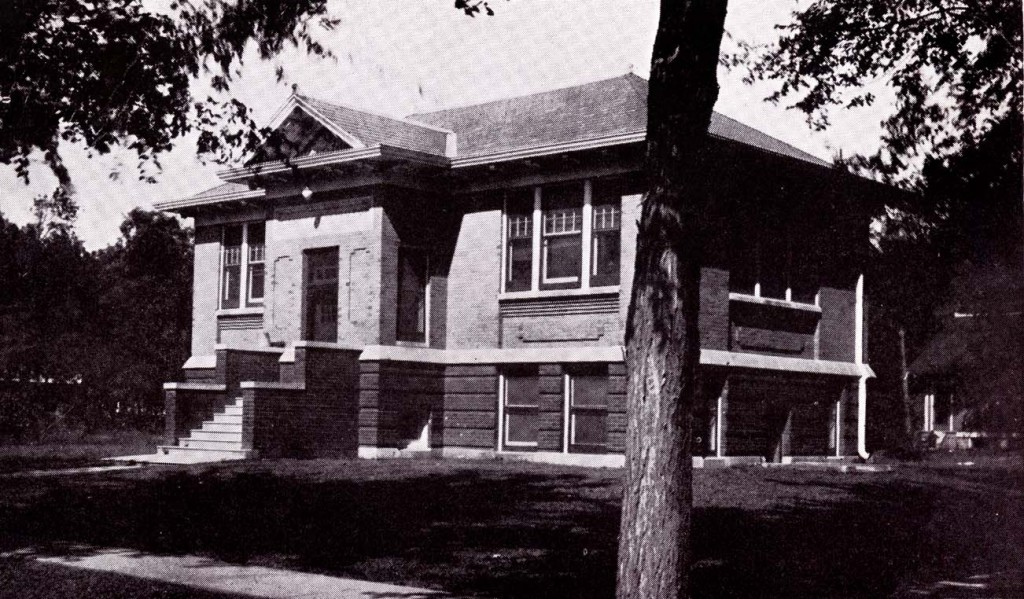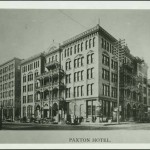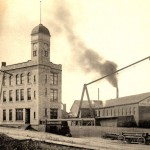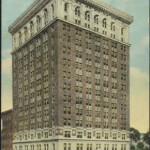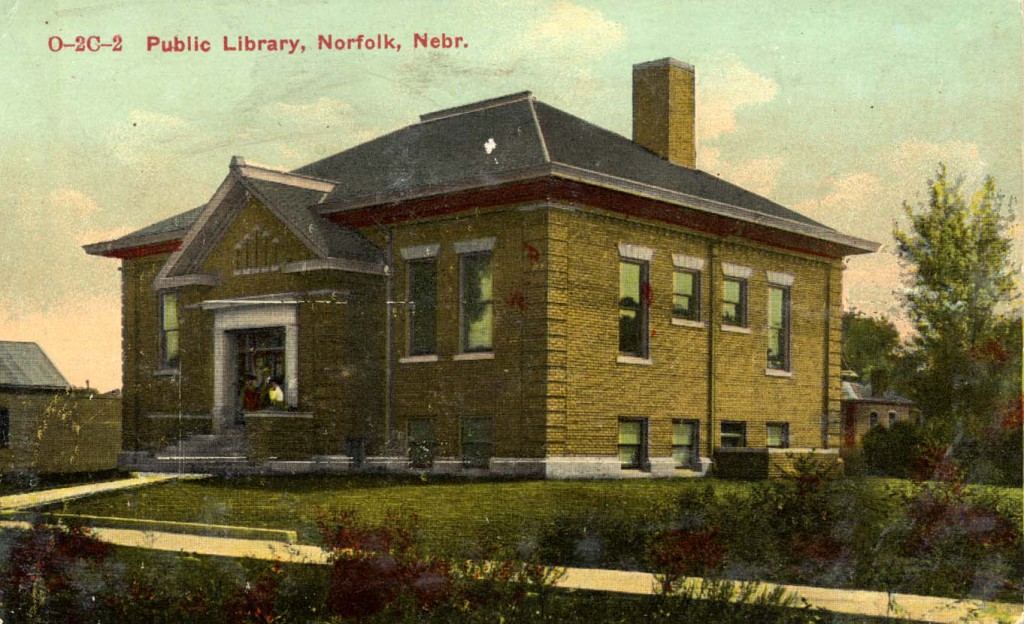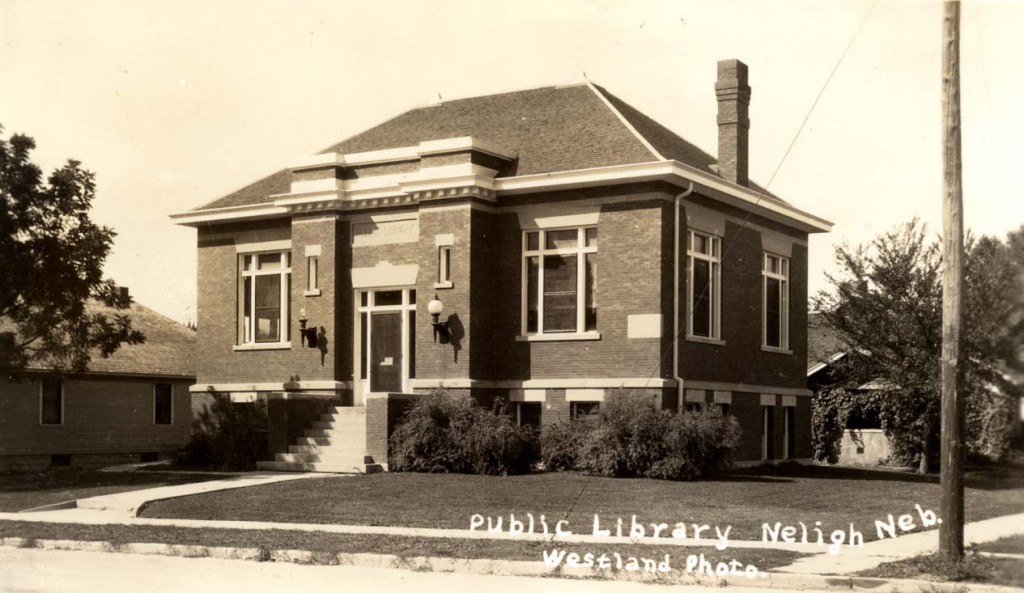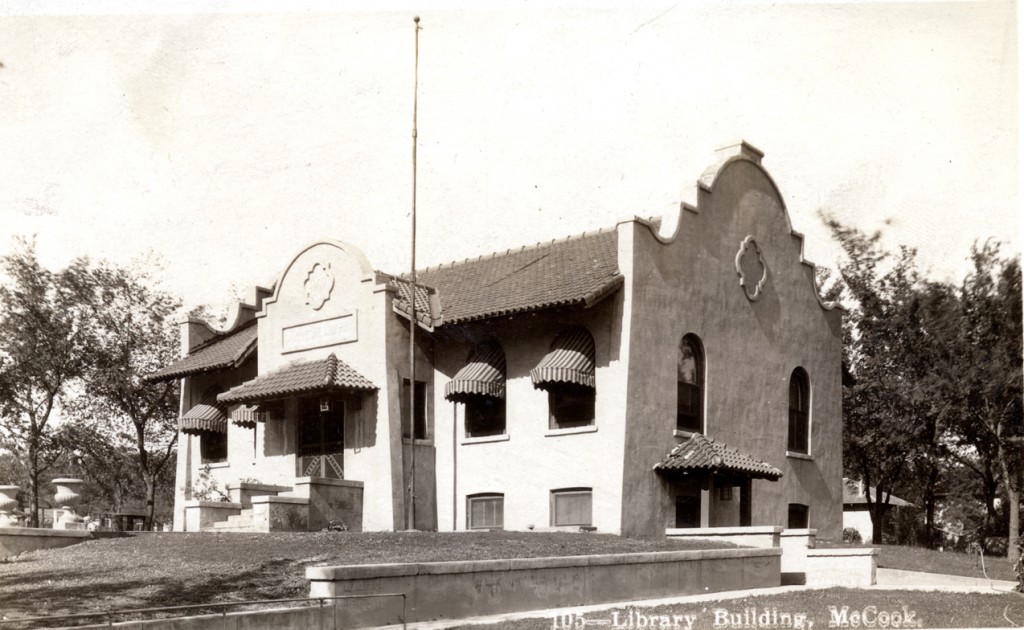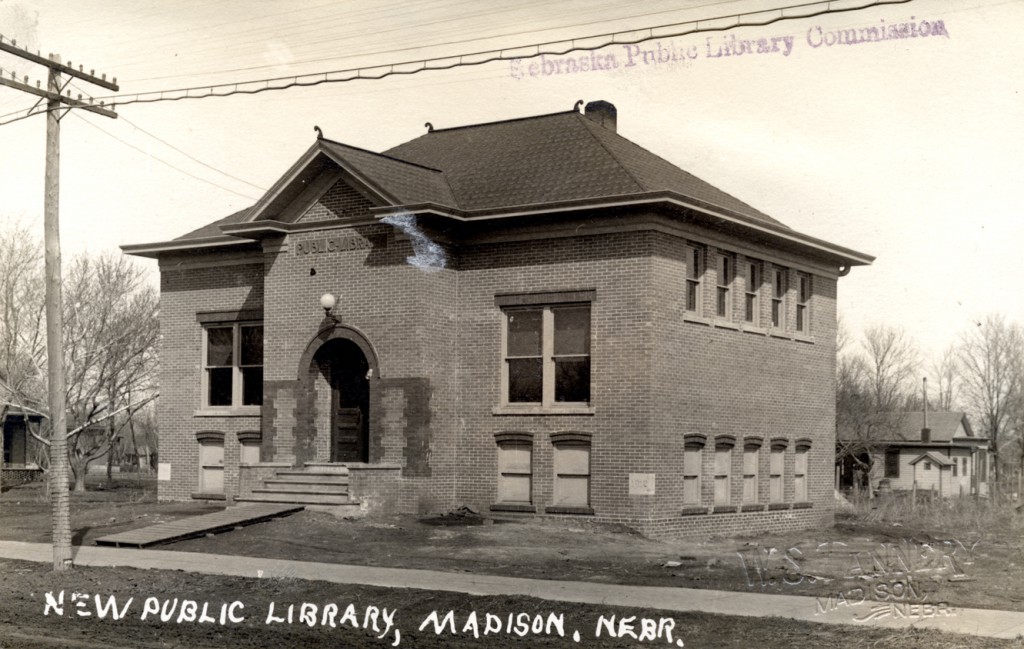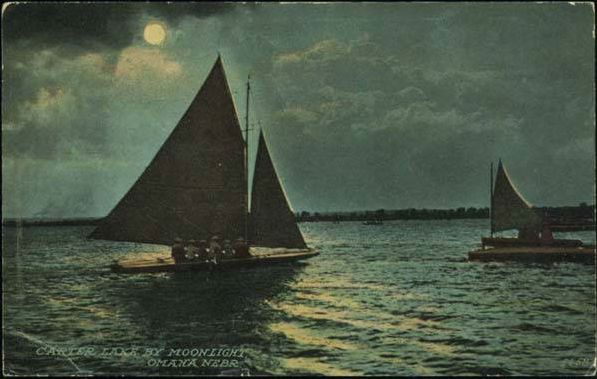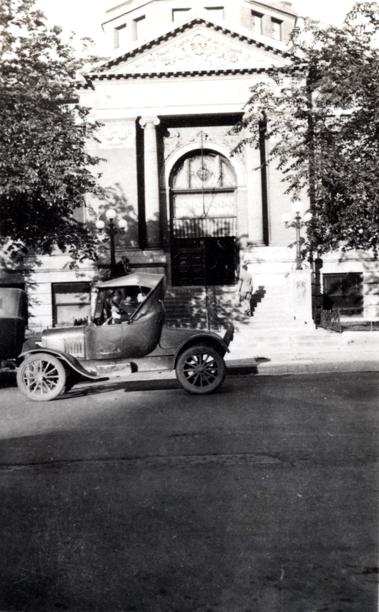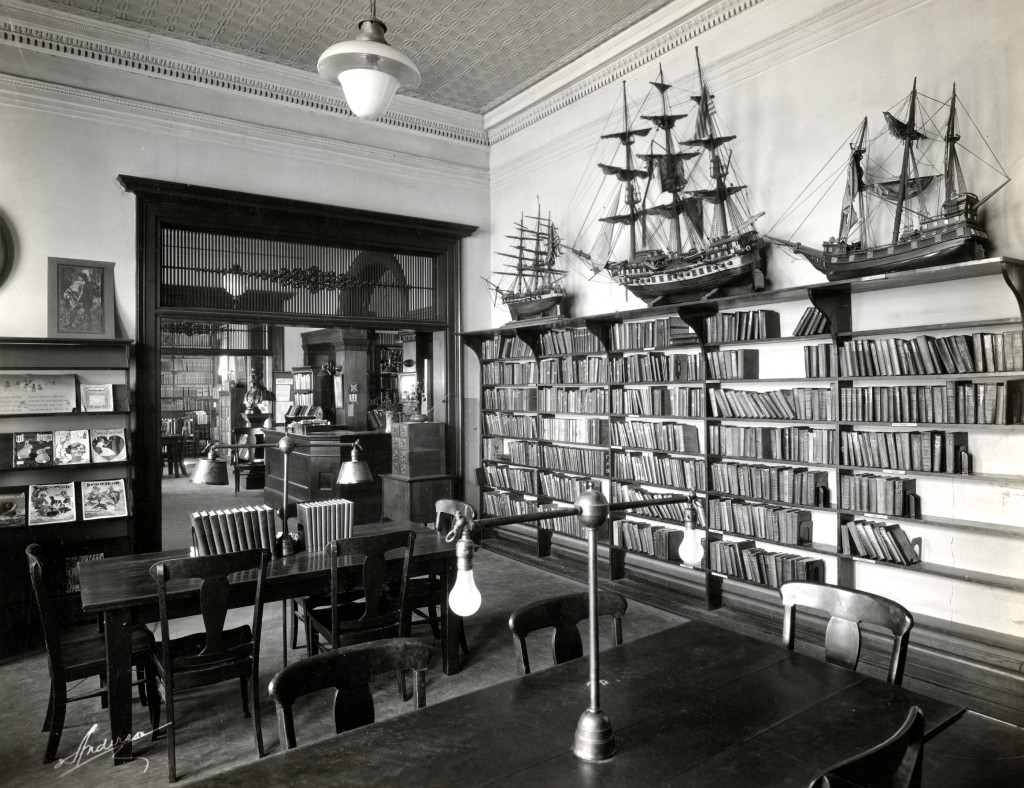Search the Blog
Categories
- Books & Reading
- Broadband Buzz
- Census
- Education & Training
- Friday Reads
- General
- Grants
- Information Resources
- Library Management
- Nebraska Center for the Book
- Nebraska Libraries on the Web
- Nebraska Memories
- Now hiring @ your library
- Preservation
- Pretty Sweet Tech
- Programming
- Public Library Boards of Trustees
- Public Relations
- Talking Book & Braille Service (TBBS)
- Technology
- Uncategorized
- What's Up Doc / Govdocs
- Youth Services
Archives
Subscribe
Category Archives: Nebraska Memories
It’s High School State Basketball Time
The Nebraska High School State Basketball tournaments are well under way in Lincoln. Last week the girl’s teams were in town for the championship games and this week the boy’s teams are here. Last night, as I watched the news coverage of the games, I wondered if there were any historical photos of high school basketball teams in Nebraska Memories. I was happy to find a few photos of basketball teams although I’m not sure they were all high school teams.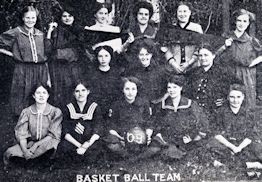
Two of the photos I located are of girls’ basketball teams. The first photo is of the 1909 Nebraska School for the Deaf (NSD) basketball team. Most the girls have a smile on their face and look happy to be having their picture taken. NSD was a school for students in kindergarten through 12th grade. It was located in Omaha from 1869 to 1998 when it closed.
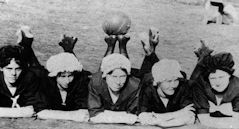 The second photo is of the Sacramento basketball team. I must admit that the first time I saw this photo I had to consult a map. I had no idea there was a town named Sacramento in Nebraska.
The second photo is of the Sacramento basketball team. I must admit that the first time I saw this photo I had to consult a map. I had no idea there was a town named Sacramento in Nebraska.
Today I think Sacramento it what some folks may refer to as a wide spot in the road. It is located about six miles southeast of Holdrege. According to the Nebraska State Historical Society, the town was established sometime between 1876 and 1878 with a population of around 200. School District No. 8 was located there from 1876-1952. While there was a school in town at the time this photo was taken in 1913, we don’t know if it was a school team.
I do have to admire the caps that the girls have on. Can you imagine all of the girls who played in the games last week wearing caps like that?
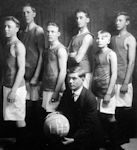 In the Nebraska Memories collection, there are two photos of basketball teams from Loomis. One photo is from 1916 and the other is from 1918. According to the description of the photos Roland Bragg, Frank Johnston, and Gordon Linder appear in both photos. Again, I’m not sure if these are the high school basketball teams.
In the Nebraska Memories collection, there are two photos of basketball teams from Loomis. One photo is from 1916 and the other is from 1918. According to the description of the photos Roland Bragg, Frank Johnston, and Gordon Linder appear in both photos. Again, I’m not sure if these are the high school basketball teams.
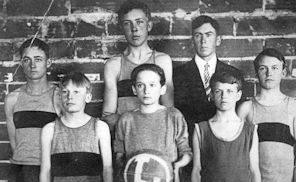 I thought some of the boys looked young so I did a quick search the 1910 US Federal Census for the boys. (Nebraskans can search this census and many other genealogy resources through the MyHeritage database, which is available through NebraskAccess.) I was easily able to locate Ronald and Reuben who were both 9 in 1910. I was also easily able to find Phil who was 10 and Gordon who was 11. That would make them 15, 16 and 17 in the 1916 photo.
I thought some of the boys looked young so I did a quick search the 1910 US Federal Census for the boys. (Nebraskans can search this census and many other genealogy resources through the MyHeritage database, which is available through NebraskAccess.) I was easily able to locate Ronald and Reuben who were both 9 in 1910. I was also easily able to find Phil who was 10 and Gordon who was 11. That would make them 15, 16 and 17 in the 1916 photo.
The last photo I want to highlight is that of the 1924 Bertrand High School basketball team. Unlike the girls from NSD these guys aren’t smiling. As you can see, they all have their arms crossed and most of them are trying to look tough.
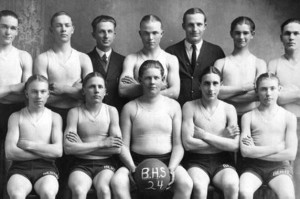 I was curious to see if this group of boys from Bertrand played in the Nebraska High School State Basketball tournament in 1924. I looked on the Nebraska School Activities Association’s (NSAA) website and found some historical information about the basketball championships. They have information for the boy’s teams going back to 1911 however; the information about the girl’s teams only goes back to 1977.
I was curious to see if this group of boys from Bertrand played in the Nebraska High School State Basketball tournament in 1924. I looked on the Nebraska School Activities Association’s (NSAA) website and found some historical information about the basketball championships. They have information for the boy’s teams going back to 1911 however; the information about the girl’s teams only goes back to 1977.
Here’s what I learned after reading the information on the NSAA’s site. In 1924 the boys state tourney was made up of 248 teams and they were divided into 16 classes. That year Bertand was in Class L. Assuming I’m reading the information correctly, Bertrand played in only one game against Papillion. They lost 11-12. Papillion then played Stockville and lost. Stockville then lost to Valley. In the last game Valley lost to Henderson. That made Henderson the 1924 Class L champions.
Do want to see more? Visit Nebraska Memories to search for or browse through many more historical images digitized from photographs, negatives, postcards, maps, lantern slides, books and other materials.
Nebraska Memories is a cooperative project to digitize Nebraska-related historical and cultural heritage materials and make them available to researchers of all ages via the Internet. Nebraska Memories is brought to you by the Nebraska Library Commission. If your institution is interested in participating in Nebraska Memories, see http://nlc.nebraska.gov/nebraskamemories/participation.aspx for more information, contact Devra Dragos, Technology & Access Services Director.
Throwback Thursday: Pawnee City Carnegie Library
Posted in General, Nebraska Memories
Leave a comment
President’s Day
On the third Monday in February, the state of Nebraska celebrates President’s Day. The name of this holiday varies across the United States. While we call it President’s Day the federal government officially calls it Washington’s Birthday. It wasn’t until I read the Wikipedia article about Washington’s Birthday that I realized how many different names this holiday has been given. Some states celebrate both Washington’s and Lincoln’s birthdays and have named the holiday to include both of their names. Even those states that call it President’s Day disagree on the spelling. It is spelled Presidents’ Day, President’s Day, or Presidents Day depending on the state. No matter how you spell it I thought this would be a perfect time to highlight the images of three US Presidents that are included in Nebraska Memories.
President Benjamin Harrison was the 23rd President. He was in office from 1889-1893. If you would like to read more about President Harrison the White House website provides a nice biography on all of the Presidents. As you can see in the photo to the right, a large crowd of people turned out to see President Harrison on May 13, 1891 in downtown Omaha. If you would like to know more about this event, I suggest you do what I’m guessing many people did at that time and read about it in the newspaper. The Library of Congress’s project Chronicling America Historic American Newspapers provides access to many digitized newspapers from across the country. In the May 14, 1891 issue of the Omaha daily bee there are multiple articles telling about the six hours President Harrison spent in Omaha. You can read all about his visit on the Chronicling America website.
President Theodore Roosevelt was the 26th President. 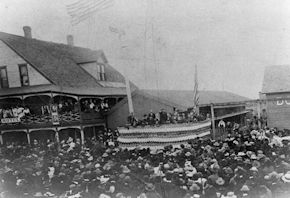 He was in office from 1901-1909. The picture at the left shows Roosevelt on October 1, 1900 in Holdrege. At this time, he was campaigning for the Vice Presidency. Roosevelt returned to Nebraska in 1912. The photos from Holdrege and Fremont both show Roosevelt standing on the back of a train car. I’m assuming these appearances were part of his campaign for the 1912 presidential election.
He was in office from 1901-1909. The picture at the left shows Roosevelt on October 1, 1900 in Holdrege. At this time, he was campaigning for the Vice Presidency. Roosevelt returned to Nebraska in 1912. The photos from Holdrege and Fremont both show Roosevelt standing on the back of a train car. I’m assuming these appearances were part of his campaign for the 1912 presidential election.
President William Howard Taft was the 27th President. He was in office from 1909-1913. 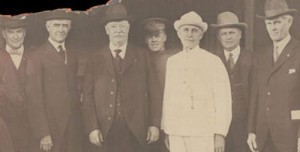 We have two photos of President Taft in Nebraska Memories. In this picture, he is standing with a number of prominent Omaha gentleman. Unfortunately, the exact date and location of this picture was never documented so we don’t know it was taken. The other picture shows the President riding in a car as part of a parade. We know that this picture was taken on September 21, 1909 at the inters
We have two photos of President Taft in Nebraska Memories. In this picture, he is standing with a number of prominent Omaha gentleman. Unfortunately, the exact date and location of this picture was never documented so we don’t know it was taken. The other picture shows the President riding in a car as part of a parade. We know that this picture was taken on September 21, 1909 at the inters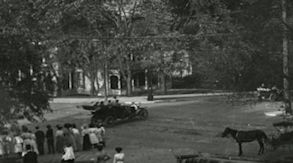 ection of 20th and Davenport Streets in Omaha. If you would like to read more about Taft’s visit the Omaha daily bee covered his visit.
ection of 20th and Davenport Streets in Omaha. If you would like to read more about Taft’s visit the Omaha daily bee covered his visit.
Visit Nebraska Memories to search for or browse through many more historical images digitized from photographs, negatives, postcards, maps, lantern slides, books and other materials.
Nebraska Memories is a cooperative project to digitize Nebraska-related historical and cultural heritage materials and make them available to researchers of all ages via the Internet. Nebraska Memories is brought to you by the Nebraska Library Commission. If your institution is interested in participating in Nebraska Memories, see http://nlc.nebraska.gov/nebraskamemories/participation.aspx for more information, contact Devra Dragos, Technology & Access Services Director
Looking Sharp
So fellas, did you think about your clothes when you put them on this morning? Dress up with a suit and tie or down with torn jeans and a baseball cap? Coordinate the colors or fabrics of top and bottoms? And where did you buy your fine fashions–a fine men’s store, a shop at the mall, or the local convenience store?
Where do you suppose a man-about-town or a hard-working farmer would have gone to get advice and purchase the latest fashions in the early part of the last century?
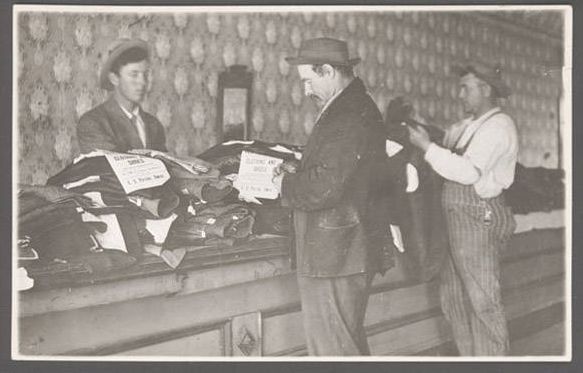 In a small northeastern Nebraska town, they may have gone to a store like the one in the photographic postcard above. The store had the simple name of “Clothing and Shoes” and had an equally simple method of displaying the merchandise by stacking it on a long counter. Notice that the clerk behind the counter is the most formally attired, but all three men wear hats and two wear suit coats. (Men looking at clothing, Nebraska State Historical Society Collection, circa 1907)
In a small northeastern Nebraska town, they may have gone to a store like the one in the photographic postcard above. The store had the simple name of “Clothing and Shoes” and had an equally simple method of displaying the merchandise by stacking it on a long counter. Notice that the clerk behind the counter is the most formally attired, but all three men wear hats and two wear suit coats. (Men looking at clothing, Nebraska State Historical Society Collection, circa 1907)
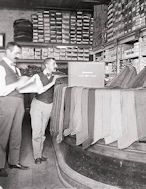 In Neligh, another northeastern Nebraska town, the men’s store at left has more merchandise displayed in a more formal layout. While much of the merchandise is stored in boxes which are stacked and organized on shelves behind the counter, pants in a variety of colors are laid out along the curved counter so that customers can get a better view. With the pants display is an order book for “Custom Made Trousers,” which it appears could be ordered in from another company. The two clerks, formally dressed in dress pants, shirts, vests, and bow ties, appear ready to advise their customers in the latest sartorial fashions. (Clothing store and employees, Neligh, Nebraska; Antelope County Historical Society Collection, circa 1910)
In Neligh, another northeastern Nebraska town, the men’s store at left has more merchandise displayed in a more formal layout. While much of the merchandise is stored in boxes which are stacked and organized on shelves behind the counter, pants in a variety of colors are laid out along the curved counter so that customers can get a better view. With the pants display is an order book for “Custom Made Trousers,” which it appears could be ordered in from another company. The two clerks, formally dressed in dress pants, shirts, vests, and bow ties, appear ready to advise their customers in the latest sartorial fashions. (Clothing store and employees, Neligh, Nebraska; Antelope County Historical Society Collection, circa 1910)
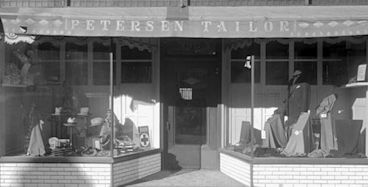 If you wanted to order clothing fitted specifically for yourself directly from the source, you may have visited your local tailor such as Herman Petersen of Fremont, who displayed examples of his clothing in the windows of his establishment as shown in the photograph at right. (Herman Petersen Tailoring, Keene Memorial Library Collection, 1925)
If you wanted to order clothing fitted specifically for yourself directly from the source, you may have visited your local tailor such as Herman Petersen of Fremont, who displayed examples of his clothing in the windows of his establishment as shown in the photograph at right. (Herman Petersen Tailoring, Keene Memorial Library Collection, 1925)
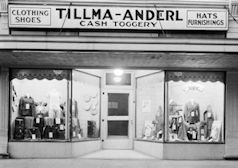 Residents of David City and the surrounding area may have shopped at Tillma-Anderl Cash Toggery, left, whose signs above the display windows advertise clothing, shoes, hats and furnishings. The displays on either side of the door include a variety of clothing and a couple of suitcases. Notice that formal clothing, including suit jackets are still the main parts of the display(Tillma-Anderl Storefront, Butler County Gallery Collection, 1938)
Residents of David City and the surrounding area may have shopped at Tillma-Anderl Cash Toggery, left, whose signs above the display windows advertise clothing, shoes, hats and furnishings. The displays on either side of the door include a variety of clothing and a couple of suitcases. Notice that formal clothing, including suit jackets are still the main parts of the display(Tillma-Anderl Storefront, Butler County Gallery Collection, 1938)
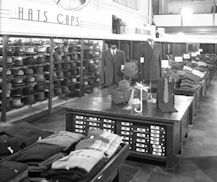 Or, if you visited the big city of Omaha, you may have shopped at the Nebraska Clothing Store, right. Shelves line the walls of the large room, and additional items are stored beneath the display tables in the center. Several suggested combinations of jackets, shirts and ties grace the top of one table. A fan helps customers keep their cool while making the right choice. (Interior view of men’s department of Nebraska Clothing Store, The Durham Museum Collection, circa 1940)
Or, if you visited the big city of Omaha, you may have shopped at the Nebraska Clothing Store, right. Shelves line the walls of the large room, and additional items are stored beneath the display tables in the center. Several suggested combinations of jackets, shirts and ties grace the top of one table. A fan helps customers keep their cool while making the right choice. (Interior view of men’s department of Nebraska Clothing Store, The Durham Museum Collection, circa 1940)
Visit Nebraska Memories to search or browse for other historical images digitized from photographs, negatives, postcards, maps, lantern slides, books and various materials.
Nebraska Memories is a cooperative project to digitize Nebraska-related historical and cultural heritage materials and make them available to researchers of all ages via the Internet. Nebraska Memories is brought to you by the Nebraska Library Commission. If your institution is interested in participating in Nebraska Memories, see http://nlc.nebraska.gov/nebraskamemories/participation.aspx for more information, or contact Devra Dragos, Technology & Access Services Director.
Posted in Nebraska Memories
Leave a comment
Throwback Thursday: North Platte Carnegie Library
Posted in General, Nebraska Memories
Leave a comment
Throwback Thursday: North Bend Carnegie Library
Posted in General, Nebraska Memories
Leave a comment
Nebraska Memories: The Paxton & Gallagher Legacy
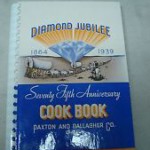 This week we received, as a gift, a copy of the Paxton & Gallagher 75th Anniversary Diamond Jubilee Cookbook, 1864-1939. It has been wonderful to leaf through the recipes and handwritten notes, and wonder about the company who produced them, as well as the many cooks who used them.
This week we received, as a gift, a copy of the Paxton & Gallagher 75th Anniversary Diamond Jubilee Cookbook, 1864-1939. It has been wonderful to leaf through the recipes and handwritten notes, and wonder about the company who produced them, as well as the many cooks who used them.
As it turns out, there are several pictures related to Paxton & Gallagher in Nebraska Memories, so here is a brief history of the company and its’ founders:
Paxton & Gallagher Wholesale Grocery was founded in 1879 by two Omaha businessmen: Ben Gallagher and William A. Paxton, and in a few short years became one of the largest grocery companies in the West. Paxton started out as a cattleman, then became a banker who had his hand in many different businesses in Omaha and Nebraska. Examples of Nebraska Memories pictures of some of his ventures are, from left to right: The Paxton Hotel, the Paxton & Vierling Iron Works, and the Nebraska Telephone Company (in which Paxton was a principal stockholder).
Gallagher, on the other hand, was a grocery man only, and previously operated a series of general stores all along the Union Pacific railroad route.
The original Paxton & Gallagher store was located at 15th and 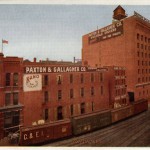 Farnam Street in downtown Omaha, but later moved to a four story complex at 701-711 S. 10th Street.
Farnam Street in downtown Omaha, but later moved to a four story complex at 701-711 S. 10th Street.
Paxton & Gallagher hit it big when they launched their Butter-Nut line of foods, and especially after 1913 when they began selling Butter-Nut brand coffee, a name that many people remember, and is still around today.
Visit Nebraska Memories to search for or browse through many more historical images digitized from photographs, negatives, postcards, maps, lantern slides, books and other materials.
Nebraska Memories is a cooperative project to digitize Nebraska-related historical and cultural heritage materials and make them available to researchers of all ages via the Internet. Nebraska Memories is brought to you by the Nebraska Library Commission. If your institution is interested in participating in Nebraska Memories, see Participating in Nebraska Memories for more information, or contact Devra Dragos, Technology & Access Services Director.
Posted in Nebraska Memories
29 Comments
“Nee-bras-ki is where we dwell”
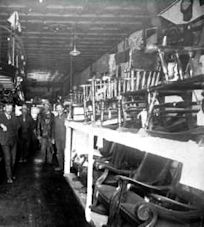 Nebraska Memories contains 5,500+ digitized items from institutions across Nebraska. I’ve been working with the project since it began and I think I’ve seen every item in the collection at least once or twice. Not surprisingly, I’m drawn to some items more than other items. I wanted to share with you a few of the items that I like.
Nebraska Memories contains 5,500+ digitized items from institutions across Nebraska. I’ve been working with the project since it began and I think I’ve seen every item in the collection at least once or twice. Not surprisingly, I’m drawn to some items more than other items. I wanted to share with you a few of the items that I like.
I’ll start with the picture of McNair Hardware that was taken in Crawford. The quality of the picture isn’t that great but I love the rows of rocking chairs. My parents own a rocking chair very similar to the padded chair on the bottom shelf. When I look at this photo, I always see it as an antique store until I remember that this photo was taken in 1909 and these are probably new chairs for sale.
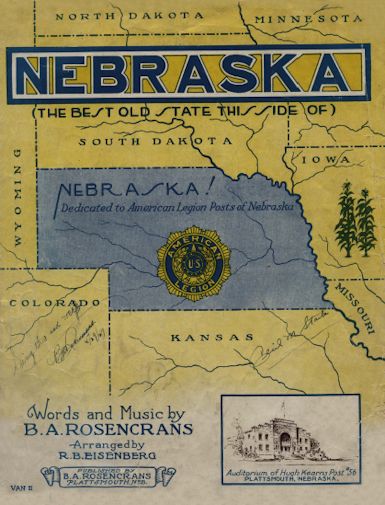 Included in Nebraska Memories is a collection of 256 musical scores from the Polley Music Library. I haven’t made the time to read the lyrics of every song in the collection but I’ve read a few. The lyrics of the song Nebraska, written by B. A. Rosencrans of Plattsmouth, Nebraska, always makes me laugh, especially the chorus. This song was written in 1927 and was dedicated to the American Legion Posts of Nebraska. I’ll tease you by just including the chorus below. You can view the complete score on the Nebraska Memories website. I’m assuming the name Volstead in the third verse is referring to the Volstead Act, which is actually a nickname for the National Prohibition Act.
Included in Nebraska Memories is a collection of 256 musical scores from the Polley Music Library. I haven’t made the time to read the lyrics of every song in the collection but I’ve read a few. The lyrics of the song Nebraska, written by B. A. Rosencrans of Plattsmouth, Nebraska, always makes me laugh, especially the chorus. This song was written in 1927 and was dedicated to the American Legion Posts of Nebraska. I’ll tease you by just including the chorus below. You can view the complete score on the Nebraska Memories website. I’m assuming the name Volstead in the third verse is referring to the Volstead Act, which is actually a nickname for the National Prohibition Act.
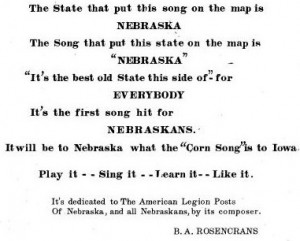 Nebraska chorus:
Nebraska chorus:
“Nee-bras-ki,” That’s its name;
Cows and corn have won it fame.
Nee-bras-ki is where we dwell,
Its the best old state this side of.
On the last page of the score, they included the text that you see in the image on the right. One line states that this “It will be to Nebraska what the “Corn Song” is to Iowa.” I’ve never heard of the Corn Song before so I did a quick search and found the score on the Iowa Digital Library website. I wonder if Mr. Rosencrans wrote Nebraska as Nee-bras-ki because Iowa was written and I-O-Way in the Corn Song.
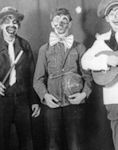 Another set of photos that intrigues me are those of the clowns and actors at Camp Atlanta. If you are not familiar with Camp Atlanta, it was a German P.O.W camp located about 10 miles southwest Holdrege. It was in use from 1943 to 1946.
Another set of photos that intrigues me are those of the clowns and actors at Camp Atlanta. If you are not familiar with Camp Atlanta, it was a German P.O.W camp located about 10 miles southwest Holdrege. It was in use from 1943 to 1946.
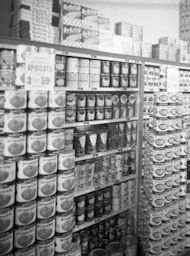 I’m sure we have all seen a TV show or movie where they are in a grocery store and the cans are stacked high in some pyramid type shape until someone either runs into the stack or pulls out the wrong can. While it makes for great entertainment, I don’t remember ever seeing stacks like this in any of the stores I frequent. Maybe that’s why I like this food display in the California Grocery. If you wanted to take advantage of the sale on apricots and buy three cans for 59 cents, which three cans would you pick up?
I’m sure we have all seen a TV show or movie where they are in a grocery store and the cans are stacked high in some pyramid type shape until someone either runs into the stack or pulls out the wrong can. While it makes for great entertainment, I don’t remember ever seeing stacks like this in any of the stores I frequent. Maybe that’s why I like this food display in the California Grocery. If you wanted to take advantage of the sale on apricots and buy three cans for 59 cents, which three cans would you pick up?
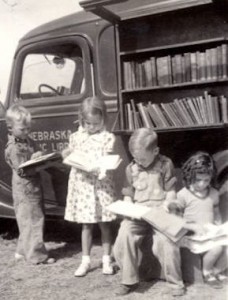 A list of favorites wouldn’t be complete unless it included pictures of children reading, a cat, and a baby playing with a dog.
A list of favorites wouldn’t be complete unless it included pictures of children reading, a cat, and a baby playing with a dog.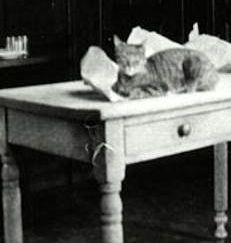
These are just a few my favorite items in Nebraska Memories. Do you have any favorites? Visit Nebraska Memories to search for or browse through many more historical images digitized from photographs, negatives, postcards, maps, lantern slides, books and other materials.
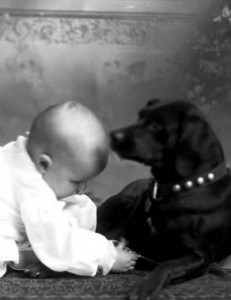 Nebraska Memories is a cooperative project to digitize Nebraska-related historical and cultural heritage materials and make them available to researchers of all ages via the Internet. Nebraska Memories is brought to you by the Nebraska Library Commission. If your institution is interested in participating in Nebraska Memories, see http://nlc.nebraska.gov/nebraskamemories/participation.aspx for more information, contact Devra Dragos, Technology & Access Services Director.
Nebraska Memories is a cooperative project to digitize Nebraska-related historical and cultural heritage materials and make them available to researchers of all ages via the Internet. Nebraska Memories is brought to you by the Nebraska Library Commission. If your institution is interested in participating in Nebraska Memories, see http://nlc.nebraska.gov/nebraskamemories/participation.aspx for more information, contact Devra Dragos, Technology & Access Services Director.
We Were Sailing Along
Although the central part of the country is some distance from an ocean, 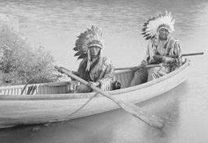 people still enjoy access to water by boat. Rivers and lakes offer a means of travel and transportation, acquiring food, recreation, and maybe a little canoodling.
people still enjoy access to water by boat. Rivers and lakes offer a means of travel and transportation, acquiring food, recreation, and maybe a little canoodling.
Canoes were developed by Native Americans and used for thousands of years. Although the first ones were dugout of tree trunks, later ones featured tree bark over frames. The framed variety worked best for the rivers, streams and lakes in North America, as in the John Anderson photograph at left from the late 1800s of two Brule Sioux, Hollow Horn Bear and Stands and Looks Back, paddling on a river (Nebraska State Historical Society Collection).
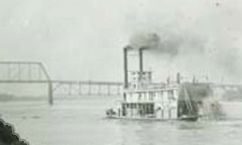 Lewis and Clark’s Expedition of 1804-1806 to explore the territory acquired with the Louisiana Purchase began on keelboat up the Missouri River which also forms the eastern border of Nebraska. A little over one hundred years later, the United States Army Corps of Engineers steamboat, Lieutenant Lewis, (right) plied the same river (Omaha Public Library Collection). In addition to surveying and exploration, boats moved people and goods more quickly than horse or oxen and wagon for many decades.
Lewis and Clark’s Expedition of 1804-1806 to explore the territory acquired with the Louisiana Purchase began on keelboat up the Missouri River which also forms the eastern border of Nebraska. A little over one hundred years later, the United States Army Corps of Engineers steamboat, Lieutenant Lewis, (right) plied the same river (Omaha Public Library Collection). In addition to surveying and exploration, boats moved people and goods more quickly than horse or oxen and wagon for many decades.
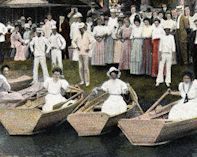 The shifting of the Missouri River after the flood of 1877 created a curved lake and the opportunity of additional recreation for the locals. The Rod and Gun Club of Omaha used the lake, known as Lake Nakoma at the time the postcard at left was created. As shown in the postcard, members were not limited to men–women are ready at the oars of the rowboats on the water. The lake, later renamed Carter Lake for the family donating funds to establish a city park on the lake, also saw craft such as canoes and sailboats like the ones below sailing in the moonlight (both postcards from the Omaha Public Library Collection).
The shifting of the Missouri River after the flood of 1877 created a curved lake and the opportunity of additional recreation for the locals. The Rod and Gun Club of Omaha used the lake, known as Lake Nakoma at the time the postcard at left was created. As shown in the postcard, members were not limited to men–women are ready at the oars of the rowboats on the water. The lake, later renamed Carter Lake for the family donating funds to establish a city park on the lake, also saw craft such as canoes and sailboats like the ones below sailing in the moonlight (both postcards from the Omaha Public Library Collection).
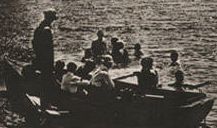 Boats are at times required for more serious duty. Many of the rivers in Nebraska are not very deep, so heavy rains or run-off from an extra deep snowpack melting in mountains to the west can cause flooding across the plains. In such cases, like the flood in Erickson, Nebraska at right, required boats to navigate the streets (Nebraska State Historical Society Collection). Other images of canoes, rowboats, and sailboats can be found in Nebraska Memories.
Boats are at times required for more serious duty. Many of the rivers in Nebraska are not very deep, so heavy rains or run-off from an extra deep snowpack melting in mountains to the west can cause flooding across the plains. In such cases, like the flood in Erickson, Nebraska at right, required boats to navigate the streets (Nebraska State Historical Society Collection). Other images of canoes, rowboats, and sailboats can be found in Nebraska Memories.
Visit Nebraska Memories to search or browse for more advertising materials or other historical images digitized from photographs, negatives, postcards, maps, lantern slides, books and various materials.
Nebraska Memories is a cooperative project to digitize Nebraska-related historical and cultural heritage materials and make them available to researchers of all ages via the Internet. Nebraska Memories is brought to you by the Nebraska Library Commission. If your institution is interested in participating in Nebraska Memories, see http://nlc.nebraska.gov/nebraskamemories/participation.aspx for more information, or contact Devra Dragos, Technology & Access Services Director.
Posted in Nebraska Memories
Leave a comment
Throwback Thursday: Kearney Carnegie Library
Interior photo of the children’s reading room at the Kearney, Nebraska Carnegie Library built in 1905.
Posted in General, Nebraska Memories
Leave a comment
